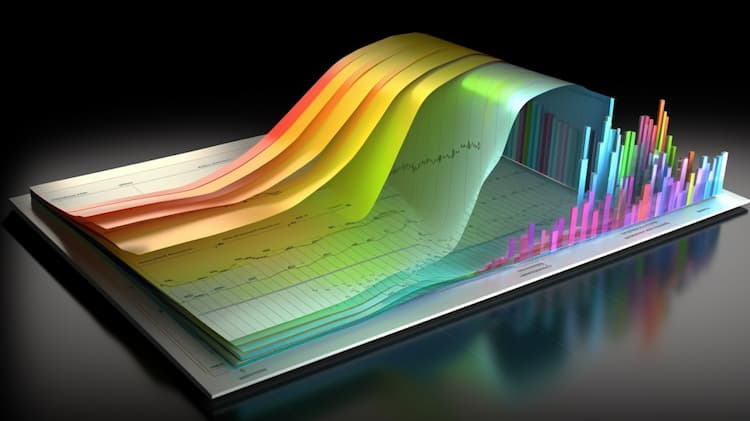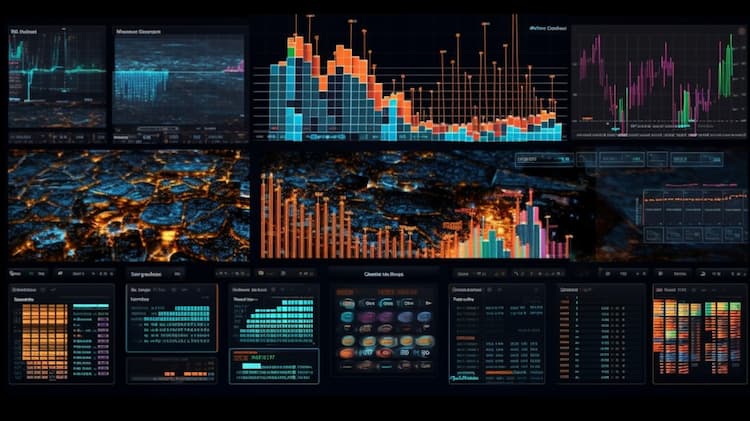
What Is LQD ETF | Investing in LQD ETF
ETFs (Exchange-Traded Funds) have gained significant popularity among investors due to their ease of use and diversified nature. In this article, we will focus on one particular ETF, LQD, and address some frequently asked questions about it.
Overview: What is LQD ETF?
LQD is the ticker symbol for the iShares iBoxx Investment Grade Corporate Bond ETF. It is an ETF that aims to track the performance of the investment-grade corporate bond market. LQD holds a diversified portfolio of corporate bonds issued by companies with high credit ratings. By investing in LQD, investors gain exposure to a basket of investment-grade corporate bonds, which can provide potential income and diversification benefits.
To learn more about LQD ETF, you can visit the official website of iShares by BlackRock: iShares LQD ETF
One key aspect to note is that LQD is a passively managed ETF, meaning it seeks to replicate the performance of a specific index rather than actively selecting individual bonds. The ETF aims to closely follow the performance of the iBoxx USD Liquid Investment Grade Index.
How does LQD ETF work?
LQD ETF works by investing in a diversified portfolio of investment-grade corporate bonds. The ETF issuer, BlackRock, uses its expertise in bond selection to create a portfolio that closely mirrors the index it aims to track. The bonds held by LQD are typically issued by companies with strong credit ratings, which reduces the risk of default.
The ETF's underlying index, the iBoxx USD Liquid Investment Grade Index, provides a benchmark for the performance of investment-grade corporate bonds in the U.S. market. LQD ETF aims to achieve a high level of correlation with the index by holding a representative sample of bonds included in the index.
 LQD overlap What Is LQD ETF?
LQD overlap What Is LQD ETF?
What are the advantages of investing in LQD ETF?
Investing in LQD ETF offers several advantages for investors. Firstly, it provides exposure to a diversified portfolio of investment-grade corporate bonds, which can help mitigate the risk associated with investing in individual bonds. This diversification can potentially enhance portfolio stability.
Secondly, LQD ETF offers liquidity. As an exchange-traded fund, it can be bought and sold throughout the trading day at market prices. This feature provides flexibility for investors who wish to adjust their positions or take advantage of short-term market opportunities.
Additionally, LQD ETF provides transparency. The ETF's holdings are disclosed regularly, allowing investors to assess the portfolio's composition and make informed investment decisions.
What are the risks of investing in LQD ETF?
While LQD ETF offers potential benefits, it is important to consider the risks associated with investing in any financial instrument. One of the primary risks is interest rate risk. When interest rates rise, bond prices tend to decline, which can negatively impact the value of LQD ETF shares. Conversely, when interest rates fall, bond prices generally rise, leading to potential gains.
Another risk to be mindful of is credit risk. Although LQD focuses on investment-grade corporate bonds, there is still a possibility of default by the bond issuers. A downgrade in the credit rating of a bond held by the ETF can also affect its value.
It's crucial for investors to carefully evaluate their risk tolerance and investment objectives before considering an investment in LQD ETF or any other financial instrument.
LQD similar ETFs Comparisons : best bond ETFs
In the subsequent sections, we will explore in-depth comparisons between the iShares iBoxx $ Investment Grade Corporate Bond ETF (LQD) and other relevant ETFs. These comparisons are designed to offer investors comprehensive insights into the strategies, risk profiles, and performance characteristics of LQD in relation to other investment options. Whether you are looking for yield, diversification, or risk mitigation, understanding the nuances of these comparisons will aid you in making well-informed investment choices in the corporate bond market.
Short comparison of LQD vs BND
This article provides a concise comparison between two prominent Exchange-Traded Funds (ETFs), LQD (iShares iBoxx $ Investment Grade Corporate Bond ETF) and BND (Vanguard Total Bond Market ETF). While both ETFs offer exposure to the bond market, their strategies and target segments differ. LQD focuses on investment-grade corporate bonds and aims to track the performance of the Markit iBoxx USD Liquid Investment Grade Index. On the other hand, BND seeks to replicate the Bloomberg Barclays U.S. Aggregate Float Adjusted Index, offering investors a broad and diversified exposure to various types of U.S. bonds, including government, corporate, and mortgage-backed securities. The article explores key factors like expense ratios, credit quality, and yield characteristics, providing insights into the suitability of each ETF for different investment objectives. Whether you prefer the targeted approach of LQD in the corporate bond space or the diversified nature of BND, this comparison will help you align your fixed-income investment strategy with your financial goals.
https://etfinsider.co/blog/comparison-bnd-vs-lqd
Short comparison of LQD vs IEF
This article delves into a concise yet comprehensive comparison of two prominent Exchange-Traded Funds (ETFs), LQD (iShares iBoxx $ Investment Grade Corporate Bond ETF) and IEF (iShares 7-10 Year Treasury Bond ETF). Both ETFs operate within the fixed-income market but with distinct focuses. LQD offers exposure to a diversified portfolio of investment-grade corporate bonds, providing potential yield and credit quality benefits. On the other hand, IEF focuses on U.S. Treasury bonds with maturities ranging from 7 to 10 years, emphasizing safety and government-backed securities. The article examines critical factors such as expense ratios, yield potential, credit risk, and interest rate sensitivity, helping investors make informed decisions based on their risk tolerance and income objectives.
https://etfinsider.co/blog/comparison-lqd-vs-ief
Short comparison LQD vs HYG
This article provides a concise comparison of two prominent Exchange-Traded Funds (ETFs), LQD (iShares iBoxx $ Investment Grade Corporate Bond ETF) and HYG (iShares iBoxx $ High Yield Corporate Bond ETF). While both ETFs focus on corporate bonds, they differ significantly in terms of credit quality and risk. LQD primarily consists of investment-grade corporate bonds, offering a more conservative approach for income-focused investors seeking lower risk. On the other hand, HYG specializes in high-yield or junk bonds, providing potentially higher yields but with increased credit risk. The article examines their expense ratios, yield profiles, and performance histories.
https://etfinsider.co/blog/comparison-lqd-vs-hyg
Short comparison of LQD vs JNK
This article provides a concise comparison between two prominent Exchange-Traded Funds (ETFs), LQD (iShares iBoxx Investment Grade Corporate Bond ETF) and JNK (SPDR Bloomberg Barclays High Yield Bond ETF). Both LQD and JNK operate in the fixed-income space, but they target different segments of the bond market. LQD focuses on investment-grade corporate bonds, offering investors exposure to high-quality debt securities issued by established companies. In contrast, JNK provides exposure to high-yield or junk bonds, which are lower-rated and typically come with higher yields but also increased credit risk.
https://etfinsider.co/blog/comparison-lqd-vs-jnk
Short comparison LQD vs MUB
This article provides a concise comparison of two prominent Exchange-Traded Funds (ETFs), LQD (iShares iBoxx $ Investment Grade Corporate Bond ETF) and MUB (iShares National Muni Bond ETF), each offering exposure to different segments of the fixed-income market. LQD primarily focuses on investment-grade corporate bonds, providing investors with access to a diversified portfolio of corporate debt securities. On the other hand, MUB specializes in municipal bonds, targeting tax-exempt bonds issued by state and local governments.
https://etfinsider.co/blog/comparison-lqd-vs-mub
In conclusion, LQD ETF provides investors with exposure to a diversified portfolio of investment-grade corporate bonds. It offers potential benefits such as income generation and diversification. However, it's important to be aware of the risks associated with investing in LQD ETF, including interest rate risk and credit risk. As always, before making any investment decisions, it's advisable to consult with a financial advisor. Please note that this article does not provide any investment advisory services.
Disclaimer: This article does not provide any investment advisory services. The information provided is for informational purposes only. Please consult with a financial advisor before making any investment decisions.
Source 1: LQD issuer website Source 2: Reuters article about LQD
LQD quote and analysis
Discover the top holdings, correlations, and overlaps of ETFs using our visualization tool.
Our app allows you to build and track your portfolio.
To learn more about the LQD iShares iBoxx $ Investment Grade Corporate Bond ETF, access our dedicated page now.
FAQ
What is LQD?
LQD is the ticker symbol for the iShares iBoxx $ Investment Grade Corporate Bond ETF. It represents an exchange-traded fund that focuses on investment-grade corporate bonds.
What is LQD ETF?
LQD ETF is an exchange-traded fund that holds a portfolio of investment-grade corporate bonds. It aims to track the performance of the iBoxx $ Liquid Investment Grade Index, providing investors with exposure to a diversified basket of high-quality corporate bonds.
What is LQD stock?
LQD is an ETF (exchange-traded fund), not a stock itself. It represents a fund that holds a diversified portfolio of investment-grade corporate bonds.
Is LQD commission-free?
Whether LQD is commission-free or not depends on the specific brokerage platform you use for trading. Some brokers may offer commission-free trading for certain ETFs, including LQD, while others may charge a commission. It is advisable to check with your broker or trading platform for their specific commission structure.
What does LQD stand for?
LQD is the ticker symbol for the iShares iBoxx $ Investment Grade Corporate Bond ETF. The acronym LQD itself does not have a specific meaning beyond representing the ETF's identifier in the financial markets.





